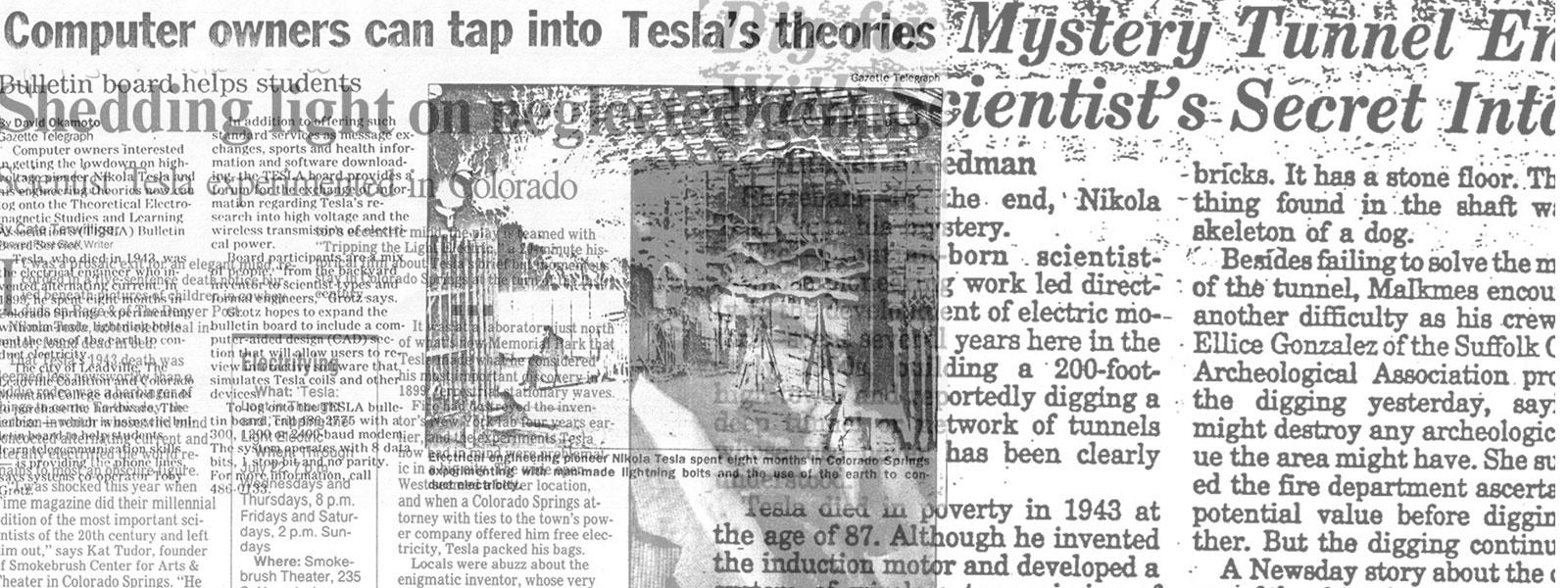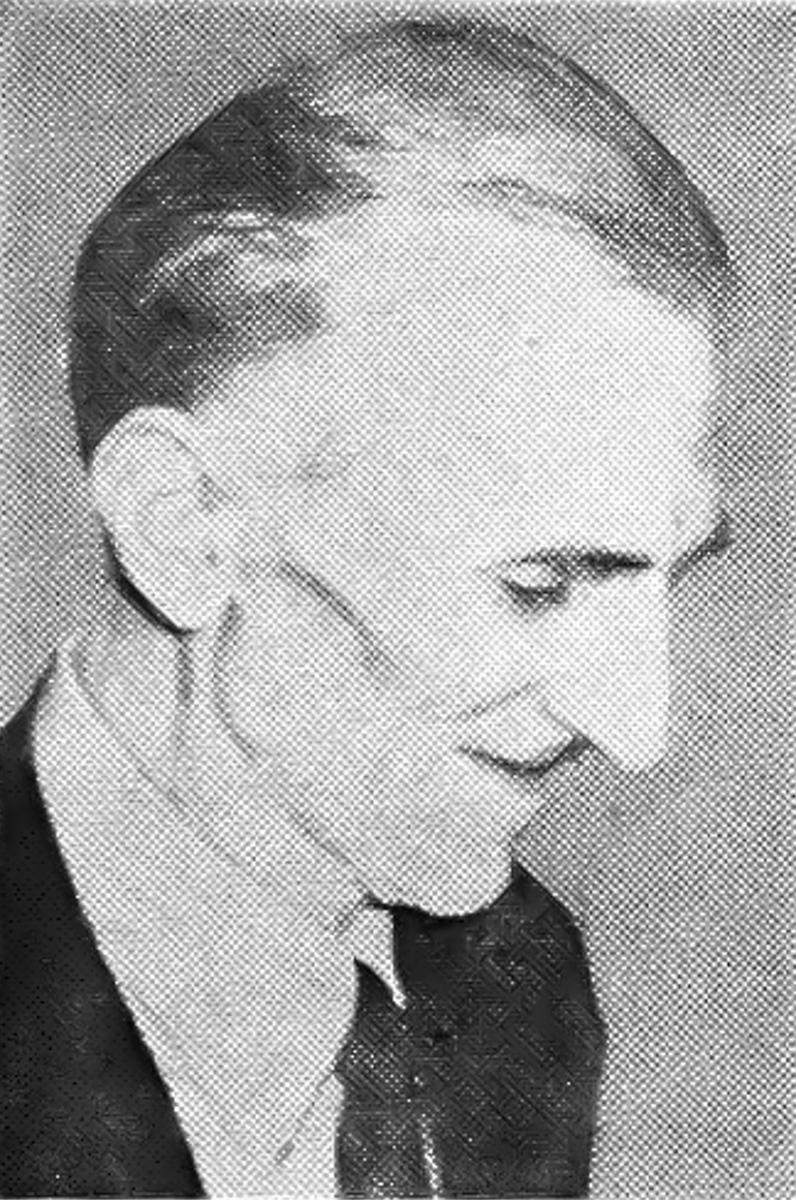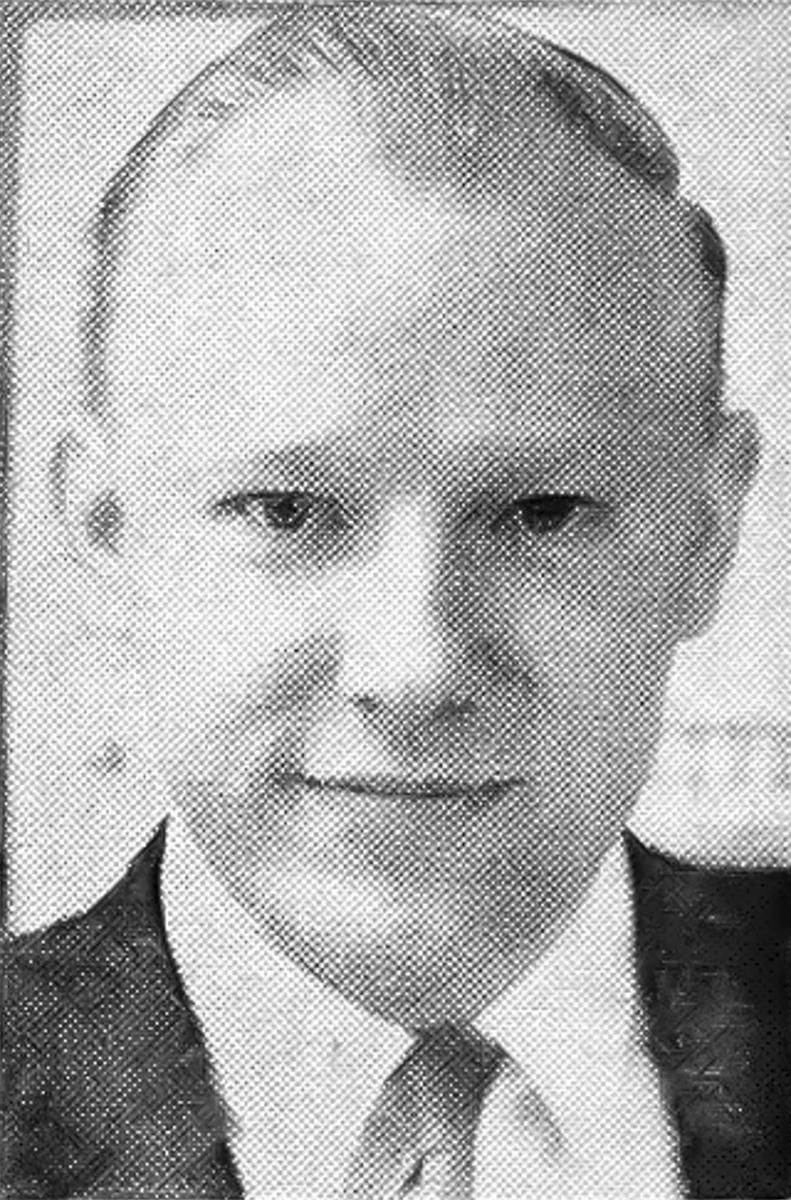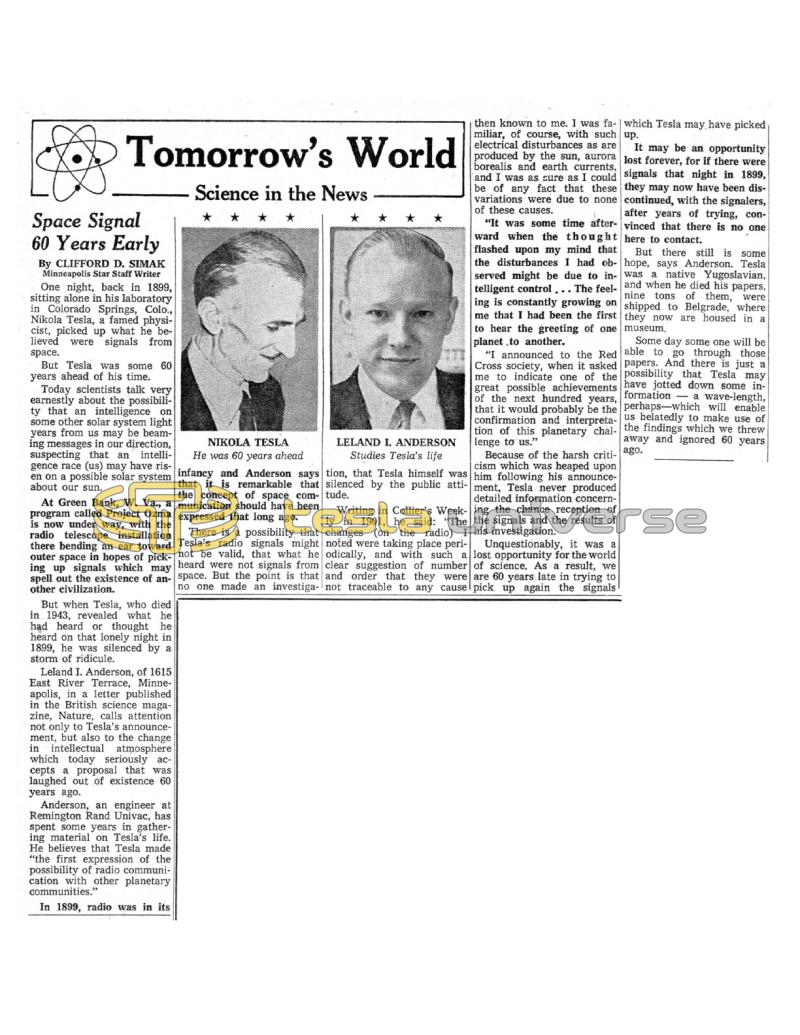
Nikola Tesla Articles
Space Signal 60 Years Early
One night, back in 1899, sitting alone in his laboratory in Colorado Springs, Colo., Nikola Tesla, a famed physicist, picked up what he believed were signals from space.
But Tesla was some 60 years ahead of his time.
Today scientists talk very earnestly about the possibility that an intelligence on some other solar system light years from us may be beaming messages in our direction, suspecting that an intelligence race (us) may have risen on a possible solar system about our sun.
At Green Bank, W. Va., a program called Project Ozma is now under way, with the radio telescope installation there bending an ear toward outer space in hopes of picking up signals which may spell out the existence of another civilization.
But when Tesla, who died in 1943, revealed what he had heard or thought he heard on that lonely night in 1899, he was silenced by a storm of ridicule.
Leland I. Anderson, of 1615 East River Terrace, Minneapolis, in a letter published in the British science magazine, Nature, calls attention not only to Tesla's announcement, but also to the change in intellectual atmosphere which today seriously accepts a proposal that was laughed out of existence 60 years ago.
Anderson, an engineer at Remington Rand Univac, has spent some years in gathering material on Tesla's life. He believes that Tesla made "the first expression of the possibility of radio communication with other planetary communities."
In 1899, radio was in its infancy and Anderson says that it is remarkable that the concept of space communication should have been expressed that long ago.
There is a possibility that Tesla's radio signals might not be valid, that what he heard were not signals from space. But the point is that no one made an investigation, that Tesla himself was silenced by the public attitude.
Writing in Collier's Weekly in 1901, he said: "The changes (on the radio) I noted were taking place periodically, and with such a clear suggestion of number and order that they were not traceable to any cause then known to me. I was familiar, of course, with such electrical disturbances as are produced by the sun, aurora borealis and earth currents, and I was as sure as I could be of any fact that these variations were due to none of these causes.
"It was some time after- ward when the thought flashed upon my mind that the disturbances I had observed might be due to intelligent control... The feeling is constantly growing on me that I had been the first to hear the greeting of one planet to another.
"I announced to the Red Cross society, when it asked me to indicate one of the great possible achievements of the next hundred years, that it would probably be the confirmation and interpretation of this planetary challenge to us."
Because of the harsh criticism which was heaped upon him following his announcement, Tesla never produced detailed information concerning the chance reception of the signals and the results of his investigation. Unquestionably, it was a lost opportunity for the world of science. As a result, we are 60 years late in trying to pick up again the signals which Tesla may have picked up.
It may be an opportunity lost forever, for if there were signals that night in 1899, they may now have been discontinued, with the signalers, after years of trying, convinced that there is no one here to contact.
But there still is some hope, says Anderson. Tesla was a native Yugoslavian, and when he died his papers, nine tons of them, were shipped to Belgrade, where they now are housed in a museum.
Some day some one will be able to go through those papers. And there is just a possibility that Tesla may have jotted down some information a wave-length, perhaps which will enable us belatedly to make use of the findings which we threw away and ignored 60 years ago.


